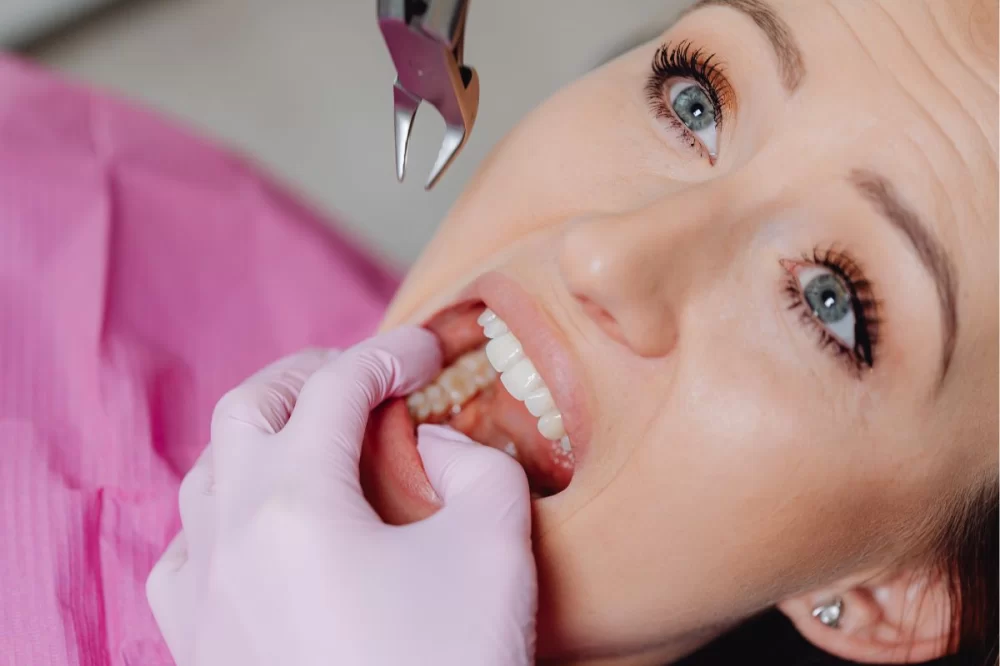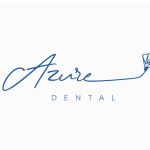
Understanding Oral Infections After Dental Work
Oral infections can occur after dental procedures, whether it’s a routine cleaning, a tooth extraction, or more complex surgeries like dental implants. These infections typically happen when bacteria enter the gums or surrounding tissues, especially if proper care is not taken during the healing process. While infections after dental work aren’t uncommon, they can lead to severe complications if not treated promptly.
After a dental procedure, the tissues in the mouth are vulnerable, making them a prime target for bacteria. If you experience symptoms of infection, it’s crucial to address them quickly to avoid further complications such as abscesses, tooth loss, or more serious systemic infections.
Common Symptoms of Dental Infections
Dental infections can manifest in various ways. Here are some of the most common symptoms to watch out for after dental work:
- Pain or Discomfort: A sharp or throbbing pain in the area of the procedure is often the first sign of an infection. This pain may worsen over time or become more intense if left untreated.
- Swelling and Redness: Infected areas may become swollen and red. This is a clear indication that the body is fighting off an infection, and prompt treatment is necessary.
- Pus or Drainage: If there is drainage of pus from the surgical site, this is a strong indication of a bacterial infection.
- Fever: A low-grade fever can accompany an infection, signaling that the body is trying to fight off harmful bacteria.
- Bad Breath (Halitosis): Foul-smelling breath that doesn’t go away may be a sign of an infection in the mouth.
- Tender Gums: Gums around the affected area may feel tender or even bleed when touched.
Recognizing these symptoms early can help prevent the infection from worsening and may reduce the need for more invasive treatments.
Treating Oral Infections with Medical Intervention
If you suspect you have an oral infection following dental work, seeking medical intervention is essential. Here are the most common treatments used by dental professionals:
- Antibiotics: A dentist may prescribe oral antibiotics to treat bacterial infections. Antibiotics are typically effective in eliminating bacteria that cause the infection. It’s crucial to complete the full course of antibiotics, even if symptoms subside before finishing the medication.
- Drainage of Abscesses: In some cases, an abscess (a pocket of pus) may form near the site of infection. A dentist may need to drain the abscess to relieve pain and remove infected material.
- Pain Management: To manage discomfort, a dentist may recommend over-the-counter pain medications or, in some cases, prescribe stronger pain relief to make the healing process more manageable.
- Follow-up Appointments: A follow-up appointment with your dentist is crucial to ensure the infection is healing properly and to check for any complications.
By working with a dental professional, you can ensure the infection is treated properly and reduce the risk of complications.
Home Remedies for Oral Infections
While professional treatment is often necessary for oral infections, there are also several home remedies that can help alleviate symptoms and promote healing. These remedies can be used alongside medical treatments for faster recovery:
- Saltwater Rinse: A warm saltwater rinse is one of the most effective ways to reduce swelling and disinfect the mouth. It can help soothe pain and remove bacteria.
- Cold Compress: Applying a cold compress to the outside of the cheek can help reduce swelling and numb the area, providing temporary relief from pain.
- Avoiding Irritants: Avoid spicy foods, tobacco, and alcohol, as they can irritate the infected area and slow down the healing process.
- Hydrogen Peroxide Rinse: Diluted hydrogen peroxide can help kill bacteria and promote healing. However, it should only be used under the guidance of a healthcare provider.
These remedies can provide some relief, but they are not a substitute for professional dental care, especially if the infection is severe.
Preventing Dental Infections After Surgery
Prevention is key when it comes to dental infections after surgery. Here are some tips to reduce the risk of infections following dental procedures:
- Follow Post-Surgery Instructions: Dentists provide specific aftercare instructions that help minimize the risk of infection. Following these guidelines is critical for a smooth recovery.
- Maintain Good Oral Hygiene: While it’s important to avoid brushing the surgical site immediately, keeping the rest of your mouth clean is vital. Be sure to brush and floss gently and avoid the surgical site until it’s fully healed.
- Use Antiseptic Mouthwash: Using an antiseptic mouthwash as recommended by your dentist can help prevent bacteria from growing and causing infection.
- Stay Hydrated: Drinking plenty of water can help keep your mouth moist and promote healing. Dehydration can slow down the recovery process.
Taking these precautions can greatly reduce the likelihood of developing an infection after dental work.
When to See a Dentist for Oral Infections
If you experience any of the symptoms of an oral infection after dental work, it’s important to see your dentist as soon as possible. Early intervention can help prevent complications like tooth loss or the spread of the infection to other areas of the body. If your pain becomes unbearable, swelling worsens, or you develop a fever, do not wait to seek professional care.
In some cases, an untreated infection can lead to more serious conditions, including abscesses that may require surgery. Therefore, it’s always better to err on the side of caution and consult a dentist.
Recommended Dental Care Products to Help Prevent Infections
Using the right dental care products can help prevent oral infections after dental procedures. Here are some highly recommended products:
- Colgate Peroxyl Mouth Rinse: An antiseptic mouthwash that helps reduce bacteria in the mouth and prevent infection.
- Waterpik Aquarius Water Flosser: A water flosser can help clean hard-to-reach areas of your mouth after dental work, preventing plaque buildupand infection.
- Sensodyne Toothpaste: Ideal for sensitive teeth, this toothpaste helps keep your gums and teeth healthy, especially after procedures like tooth extractions.
Incorporating these products into your oral hygiene routine can support the healing process and minimize the risk of infection.
Conclusion: Stay Ahead of Oral Infections
Oral infections after dental work are a common concern, but with proper care and treatment, they can be managed effectively. From recognizing the symptoms early to using home remedies and professional treatments, it’s important to stay proactive in your recovery. Don’t forget the role of prevention—follow your dentist’s aftercare instructions, maintain good oral hygiene, and use recommended dental products to keep infections at bay.
Want to ensure a smoother recovery after dental work? Explore our range of recommended dental care products, designed to support your healing process and prevent infections. Click here to check out the best options for your oral care needs.







 Northborough Dental Associates4.0 (261 review)
Northborough Dental Associates4.0 (261 review) Southwest Family Dental Office2.0 (11 review)
Southwest Family Dental Office2.0 (11 review) West End Orthodontics4.0 (62 review)
West End Orthodontics4.0 (62 review) Dr. Janelle Holden, DDS4.0 (5 review)
Dr. Janelle Holden, DDS4.0 (5 review) Colin A Gustus DMD4.0 (127 review)
Colin A Gustus DMD4.0 (127 review) Azure Dental (formerly Keating Dentistry)4.0 (117 review)
Azure Dental (formerly Keating Dentistry)4.0 (117 review) The Importance of Oral Health Education During Pregnancy for a Healthy Pregnancy
The Importance of Oral Health Education During Pregnancy for a Healthy Pregnancy Best Tips for Brushing Your Teeth Properly for Healthy Gums: Essential Techniques for Oral Health
Best Tips for Brushing Your Teeth Properly for Healthy Gums: Essential Techniques for Oral Health Why Skipping Dental Checkups Can Lead to Bigger Oral Health Problems
Why Skipping Dental Checkups Can Lead to Bigger Oral Health Problems Advantages of Porcelain Dental Restorations
Advantages of Porcelain Dental Restorations How Can Diabetes Cause Tooth and Gum Problems? Preventing and Managing Oral Health Issues
How Can Diabetes Cause Tooth and Gum Problems? Preventing and Managing Oral Health Issues Healthy Habits for Promoting Good Oral Health and Hygiene: Tips for a Healthy Smile
Healthy Habits for Promoting Good Oral Health and Hygiene: Tips for a Healthy Smile